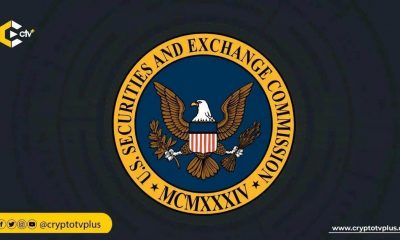News
SEC Chair Gensler’s proposal revisions to exchange definition sparks concerns

United States Security and Exchange Commission (SEC) Chair Gary Gensler has proposed revisions to the definition of exchanges, raising concerns in the cryptocurrency sector. Gary was particular about defining exchanges, especially with the rise of automated and high-speed trading strategies, including those for digital assets.
The revision from the Chair targets a proposal first released by the SEC in 2022. This proposal requires platforms acting as market makers for government securities to register with the appropriate authorities before operating.
If implemented, it could impact not only centralized exchanges but also DeFi platforms, which may need to follow similar rules as traditional exchanges. The 2022 proposal includes language that could bring DeFi platforms under the SEC’s authority, potentially requiring them to register as exchanges or alternative trading systems (ATS).
Part of this proposal is already in effect, as Prometheum and tZero have recently engaged with the U.S. Securities and Exchange Commission (SEC) regarding their operations as special-purpose broker-dealers (SPBDs) in the cryptocurrency space.
Prometheum, which has received SEC approval to operate as a special-purpose broker-dealer (SPBD), plans to offer custody services for Ethereum’s token, Ether (ETH). This has prompted lawmakers to question the regulatory clarity around such activities, particularly whether ETH is classified as a security.
The House Financial Services Committee has requested further clarification from the SEC on how Prometheum will meet its SPBD obligations while providing these services. Lawmakers are concerned that allowing Prometheum to proceed without clear guidelines could set a problematic precedent for the digital asset market.
Read also: SEC charges TrustToken and TrueCoin over stablecoin fraud
Similarly, tZero has been granted a special-purpose broker-dealer license by the SEC and FINRA, making it the second firm to receive this designation. This approval allows tZero to custody digital asset securities and offer trading services through its affiliated alternative trading system (ATS).
SEC and exchanges
The U.S. Securities and Exchange Commission (SEC) has recently taken action against several major cryptocurrency exchanges for violating regulations. In June 2023, the SEC accused Coinbase of operating as an unregistered national securities exchange, broker, and clearing agency. The complaint also alleged that Coinbase’s staking program and other services should have been registered as securities under federal law.
Another high-profile case involved FTX, which collapsed in late 2022. Following its bankruptcy, FTX faced intense regulatory scrutiny, particularly regarding allegations of fraud and mismanagement. The SEC has been investigating the exchange’s founder, Sam Bankman-Fried, who faces charges of fraud and money laundering.
In early 2022, BlockFi was charged by the SEC for not registering its retail crypto lending product, which violated securities laws. BlockFi agreed to pay a $100 million fine but declared bankruptcy later that same year.
These cases highlight the SEC’s broader effort to enforce compliance within the cryptocurrency industry, as many exchanges have been accused of dealing in unregistered securities.
























